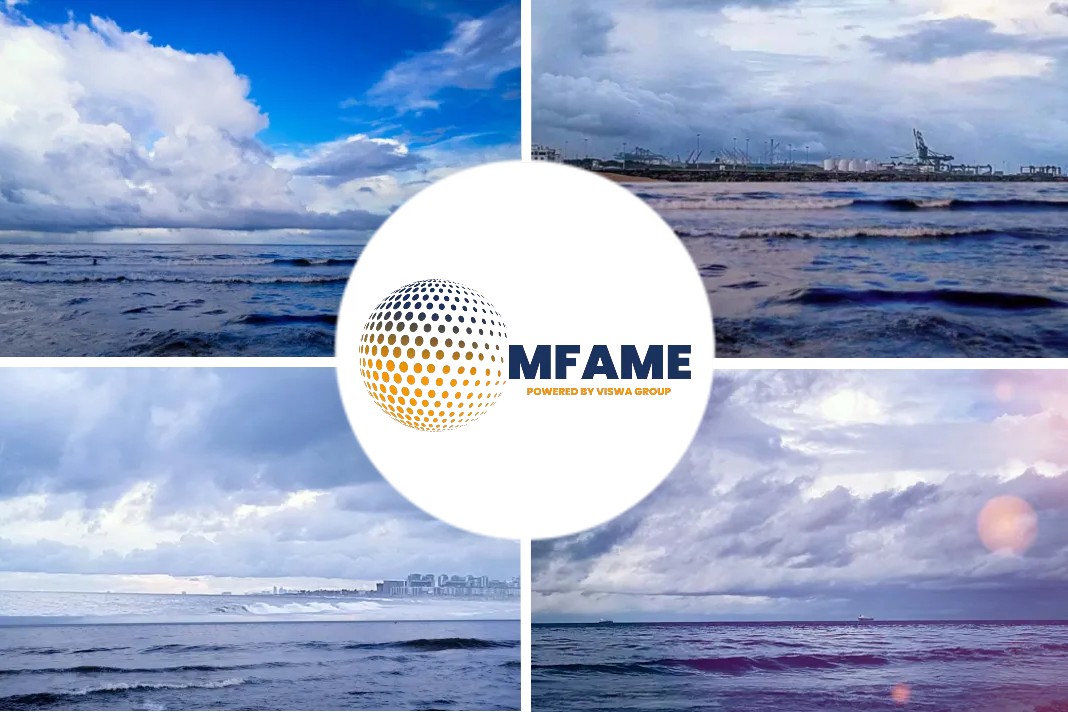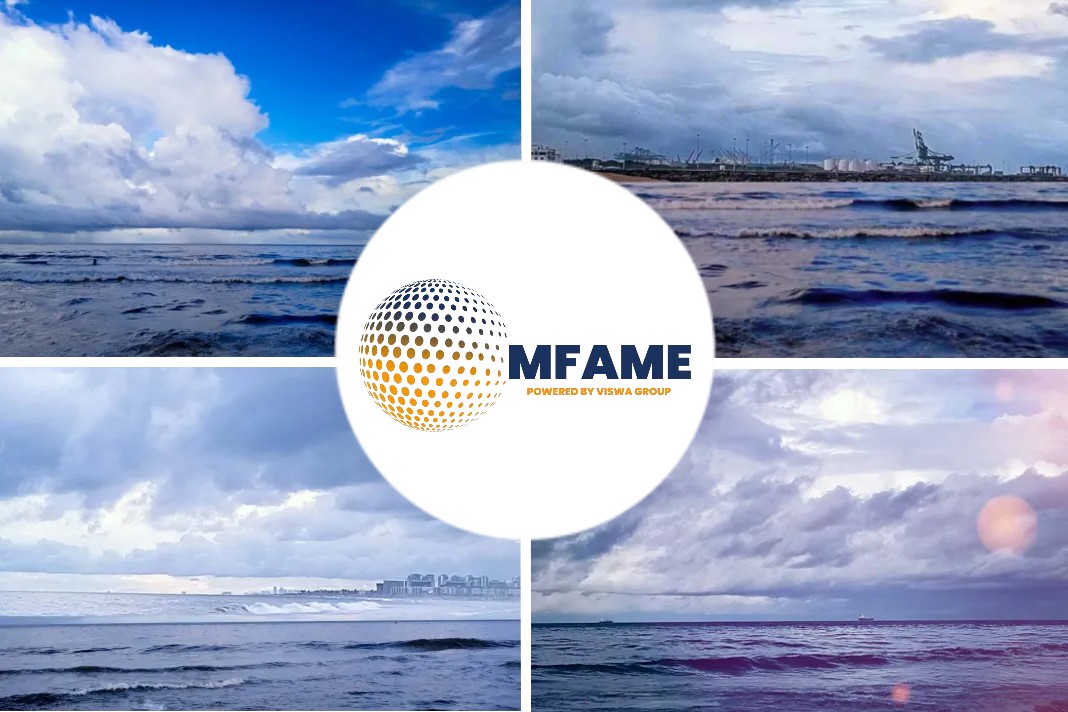- China may become the second Asian nation to ban the use of open-loop scrubber systems in its waters.
- In November 2018, Singapore’s Maritime Port Authority banned the use of these systems in waters off one of the world’s largest bunkering ports.
- The Exhaust Gas Cleaning Systems Association (EGCSA) reacted to Singapore’s with dismay.
- Discharge from open-loop scrubbers is currently banned in several other ports around the world as well.
In the saga ‘Will they or won’t they?’ surrounding China’s potential country-wide prohibition of open-loop scrubbers, the trading behemoth with seven of the world’s 10 largest ports and the world’s 11th-longest coastline probably will proceed with the prohibition, but not quite yet, reports Marine Propulsion.
The Environment Un-friendly Rumour?
Not long after 2019 rang in, reports surfaced that China had taken a decision that would effectively ban the use of open-loop style exhaust gas cleaning systems, commonly known as scrubbers, in its emission control areas. These reports echoed a similar set of stories in September 2018 which Chinese officials later denied.
In both cases, shipping industry association BIMCO have been among the first to provide clarity. In September 2018, Dong Leyi, an official from China’s Maritime Safety Administration (MSA) told BIMCO’s regional manager in Asia, Wei Zhuang, “I can tell you that China is not going to ban open-loop scrubbers, as long as they are in compliance with the prevailing regulation.”
And in January, Mr. Zhuang again offered clarity based on discussions with China’s MSA. BIMCO said Mr. Zhuang worked with the MSA to clarify the meaning of a Chinese-language policy document to understand China’s position on the discharge of the wash water used to clean emissions in scrubber systems.
The phrases below come from section seven in the document, and Mr. Zhuang confirmed the translation to this publication:
- 7.1.1 Discharge of open exhaust gas cleaning system wash water should meet the requirements of relevant regulations.
- 7.1.2 It is forbidden to discharge open exhaust gas cleaning system wash water in inland river ECAs, port water areas of coastal ECAs, and in Bohai Bay.
- 7.1.3 Other coastal bans on the wash water of the open exhaust gas cleaning system in the waters of emissions control areas will be announced in due course.
As BIMCO said in a statement on the matter, the policy language means China has “updated its domestic emission control area (DECA) regulations with effect from 1 January 2019 but has not yet placed a full ban on open-loop scrubbers”.
China made the decision to extend its emissions control areas in 2018. BIMCO said that in November 2018, regulators said that ships equipped with scrubbers were permitted to carry and use high sulfur fuel oil (HSFO), subject to emissions monitoring, and that scrubber waste and water must be disposed of according to relevant regulation.
New Realities after China’s Update
While this remains to be the case BIMCO has encouraged its members to pay attention to the following regulatory realities that arise from China’s most recent update to its DECA regulations:
- Ships that need to switch to low sulfur fuel must make a fuel switch plan and keep it on board. The switch timing, ship’s position, fuel sulfur content both before and after switching – as well as fuel tank data and consumption details, must be properly recorded on the ship’s engine log. BIMCO reads this as in line with IMO requirements for entering and leaving ECAs in accordance with Marpol Annex VI.
- The discharge and disposal of water pollutants generated by ships using exhaust gas cleaning systems (scrubbers) must meet the requirements of relevant regulations. It is prohibited to discharge wastewater generated by open-loop scrubbers within the inland emission control areas, port water areas of coastal emission control areas and Bohai Bay water areas.
- A ban on wastewater generated by open-loop scrubbers within the whole of China’s domestic emission control area will be announced in due course.
- It is prohibited to discharge exhaust gas wash water residues into any current DECA water or to burn them on board.
The Dangling Carrot
If China’s official policy statement to place further bans on open-loop scrubbers are forthcoming holds true, China would become the second Asian nation to ban the use of these systems in its waters.
In November 2018, Singapore’s Maritime Port Authority announced it would ban the discharge of wash water in its ports, effectively banning ships from using wet, open-loop scrubber systems in waters off one of the world’s largest bunkering ports.
The Exhaust Gas Cleaning Systems Association (EGCSA) reacted to Singapore’s with dismay, saying it was disappointing that Singapore had made the decision outside the shipping industry’s regulatory body, International Maritime Organisation (IMO).
Responding to China’s move toward banning open-loop scrubbers in its territorial waters, EGCSA director Don Gregory told this publication “We will most definitely be in contact with the Ministry and seek to liaise with them as best we can to provide information… in the spirit of full industry co-operation.”
“At the end of the day, we all support reducing or eliminating emissions to air, and we, of course, would not wish to do that at the expense of the aquatic environment. As an industry, we have worked hard to look at the components and compounds being discharged in wash water and how, if at [all], they might be creating short- or long-term impacts and if those impacts are short-lived or more of a chronic nature.”
Other Stories
In addition to Singapore and parts of China’s ECAs, discharge from open-loop scrubbers is currently banned in Belgium, and Germany has a partial ban along sections of the Rhine. Australia, too, has reportedly considered a ban. Open-loop scrubbers, the most commonly used system, discharge emissions residue into the sea, as opposed to closed-loop scrubbers which collect the residue on board the ship for later discharge in port.
Did you subscribe for our daily newsletter?
It’s Free! Click here to Subscribe!
Source: MPropulsion


























